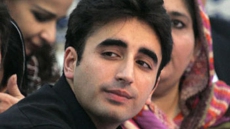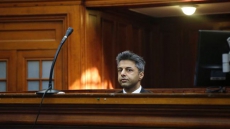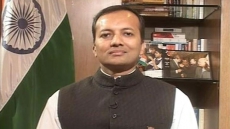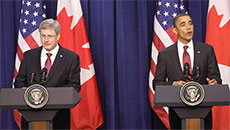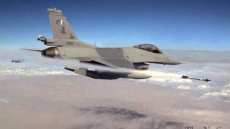Narendra Modi was dressed for the occasion wherever he went, but the diverse colours that the Indian prime minister donned on his recent US visit had one unifying theme - to win America. And this is being talked about even a week after his visit.
And win America he did even before he reached Washington for a much awaited summit with President Barack Obama after wowing the Indian diaspora, sharing the stage with top American music stars to reach out to America's liberal youth and wooing the big business in the Big Apple.
It was a surprise performance from a once provincial leader with little foreign policy experience who came to power just four months ago though with a historic win in Indian elections giving his Bharatiya Janata Party a clear mandate for the first time in 30 years.
Landing in America's financial capital in a smart casual maroon bandhgala and black pants, he got out of his car in front of his hotel to shake hands with delighted members of the Indian-American community chanting "Modi Modi" as anxious security guys scrambled to keep their charge safe
Then he switched to a more formal bandhgala suit for meetings with the city's mayor and a Nobel Laureate cancer researcher. That was to be the pattern of Modi's 100-hour action-packed whirlwind tour laced with symbolism.
Next day wearing his trade mark half sleeve Modi kurta and churidars with a grey shawl thrown on his left shoulder, he paid homage at Ground Zero where the twin towers of the World Trade Centre stood before the 9/11 attack, to show India's resolve to fight terrorism and solidarity with Americans.
Switching to a formal blue bandhgala suit, Modi then took to the world stage with an address to the UN General Assembly choosing to speak in India's national language, Hindi.
And instead of mouthing cliché ridden paeans to non-alignment he gave a call to form a 'G-all' in today's interdependent world. Yet he also chided Pakistan for raking up Kashmir at the UN and offered to engage in a "serious bilateral dialogue", but "without the shadow of terrorism".
In the evening, he outlined his vision of a 'Clean India' to a 65,000-strong youthful crowd at New York's Central Park addressing them in an idiom they understood saying "I salute you" and "May the force be with you" from the evergreen hit Star Wars films.
A capacity crowd of nearly 20,000 star struck Indian-American gave him a rock star like welcome at the Madison Square Garden as he spoke to them in Hindi in his chatty style for over an hour as thousands more heard him on jumbotron screens at Times square and in homes across the US.

Then packing meetings with two governors, including South Carolina's Indian-American Nikki Haley, 40 odd lawmakers, 11 CEOs and an address to the Council on Foreign Relations, again in Hindi, Modi headed to Washington.
An Indian-American writer suggested that Modi through his fast for the Hindu festival of Navratri and the choice of his apparel was speaking in code his "Hindu nationalist" supporters, while another implied that he was cocking a snook to the American establishment that had denied him a visa for nearly a decade.
Be as it may, the US officialdom from President Barack Obama down also treated Modi no less as they broke the ice over an exclusive dinner at the White House. As they shared common experiences, Obama wondered how Modi kept up such a rigorous schedule on just a diet of warm water and yoga and told him how he himself enjoyed dancing during his 2010 trip to India.
So much so that as the summit ended with the two leaders giving a new mantra of "chalein saath saath - together we go forward," Obama joined Modi on an unscheduled trip to the memorial of African-American civil rights leader Martin Luther King Jr.
Modi had come full circle in just four short months. There lay the true significance of the Modi visit though some critics dismissed their joint statement vowing to deepen cooperation in from defence to nuclear to space to counter-terrorism to women's empowerment and health as merely a rehashed 'laundry list'.
What Modi himself has called a "hugely successful" and US officials branded as an "extraordinarily successful" journey was different from others before in more ways than just optics: the two sides have lined up a "pretty ambitious agenda of engagement" over the next nine months or so to translate words into action.

